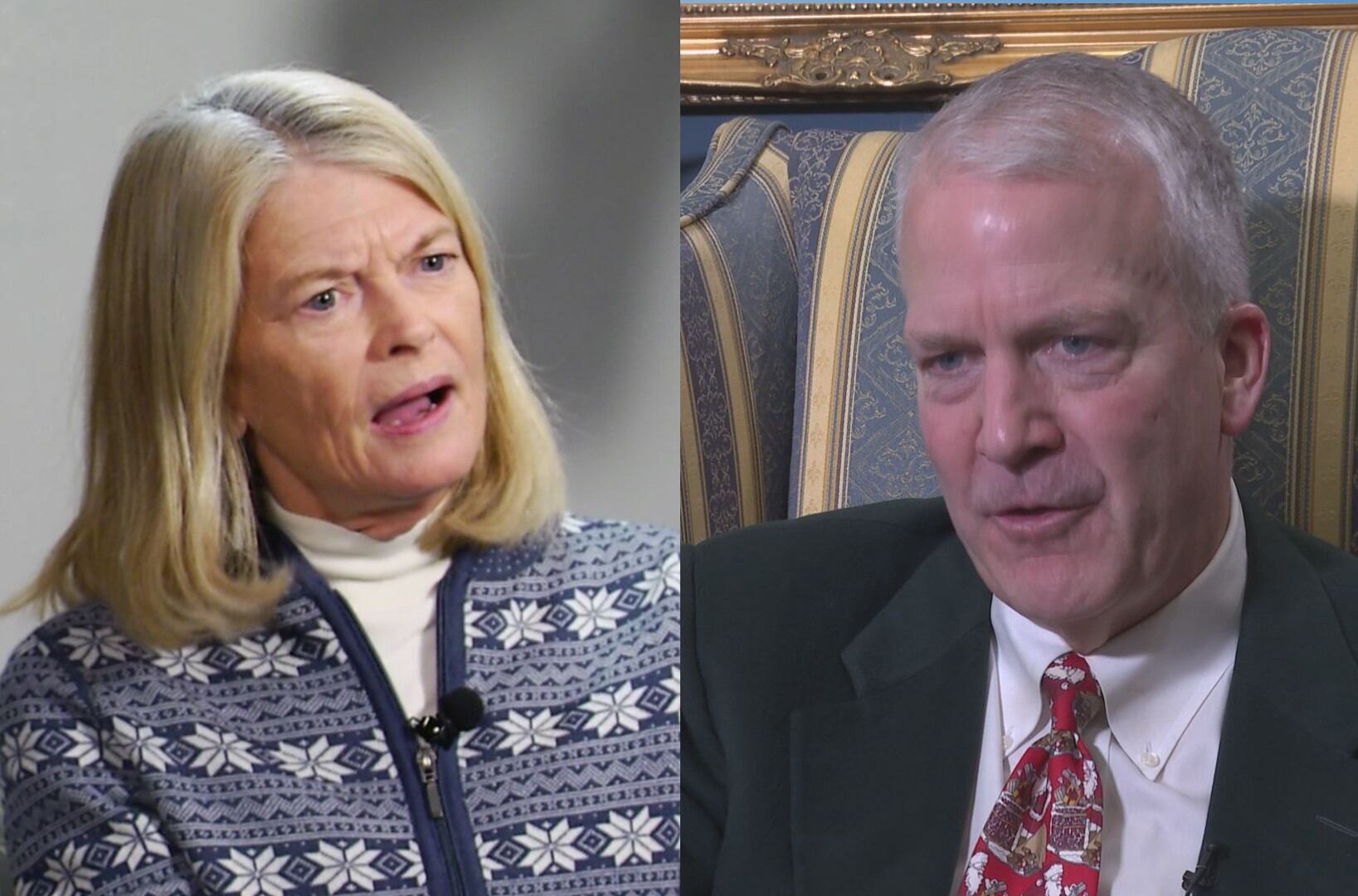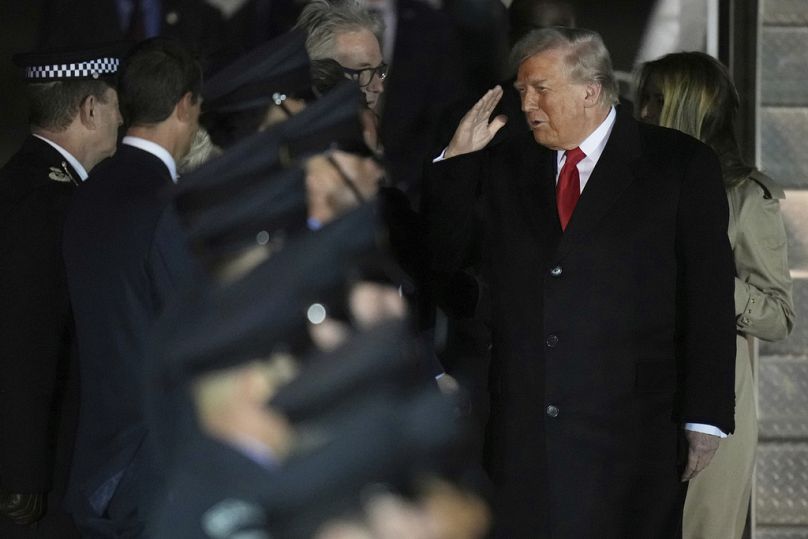
ANCHORAGE, Alaska (KTUU) — For the past week, American eyes have fixated on Sen. Lisa Murkowski, R-Alaska, who has been vocal about the uncertainty of her vote on the controversial “One Big Beautiful Bill Act.”
The Senate went long into the night, but when it finally came time to vote at 8 a.m. AKDT, Murkowski backed the bill's passage.
Although she voted for the bill, her support for it was still unclear.
Do I like this bill? No, because I tried to take care of Alaska's interests," she said in a CBS interview inside the halls of the Capitol Tuesday morning. "I know that in many parts of the country, there are Americans who won't benefit from this bill. I don't like that.
“But when I saw the direction that this is going, you can either say, ‘I don’t like it, I’m not trying to help my state,’ or you can roll up your sleeves and do so. I am super tired,” the senator added.
In a later statement, Murkowski defined "Alaska's interests" as advanced opportunities for resource development in the NPR-A, the Coastal Plain and Cook Inlet, with aims to create jobs and increase Alaskan revenue.
Sen. Dan Sullivan, R-Alaska, told Alaska’s News Source, “the one state that really, really did well in this bill was the great state of Alaska.”
“This is a jobs bill for Alaska,” he said. “This is all about creating really good strong private sector-led jobs on the resource development side.”
Although Murkowski voted for its passage, she also expressed concern that the bill fell short in protecting Medicaid coverage and SNAP benefits, an issue that opponents of the bill have long warned about.
"It is the people of Alaska that I worry about the most, especially when it comes to the potential loss of social safety net programs ... that our most vulnerable populations rely on," she said in a statement.
But the narratives coming from Sullivan and Murkowski don't line up when it comes to the cuts. Sullivan said Alaska was a state removed from the brunt of the cuts, saying the only reductions are from provider taxes and state-directed payments, neither of which, he insisted, Alaska uses.
“I was able to get a rural hospital fund negotiated, a big expansion of it last night, $50 billion for rural hospitals,” he said. “I anticipate Alaska in the next 5 years, we’ll be getting at least $200 million additional federal dollars for hospitals, for Medicaid, for helping patients. So it’s a big win for our rural hospitals and healthcare as well.”
When asked if he was worried about the people who relied on Medicaid and SNAP benefits, Sullivan said the state is "in good shape," reiterating that Alaska is in a different position because, he said, Alaska does not use provider taxes or state-directed payments.
With the Senate's passage The bill now returns to the House due to the several amendments added to it in the Senate. It will be up for debate in its amended state at 5:00 a.m. AKDT. If no new amendments are presented and added by the House, the bill will be sent to President Trump's desk, where it will be signed into law. President Trump initially said he wanted to receive the bill by the Fourth of July, but his confidence in the bill arriving on time has wavered.
It's the "artificial deadline," Murkowski said Trump set, that she found problematic, saying that it hindered the legislature from "producing the best bill for the country," she said in the CBS interview.
This has been an awful process—a frantic rush to meet an artificial deadline that has tested every limit of this institution," Murkowski's statement reads. "While we have worked to improve the present bill for Alaska, it is not good enough for the rest of our nation—and we all know it.
Rep. Nick Begich, R-Alaska, voted for the bill’s original passage and is unlikely to deviate in his support. While his office told Alaska’s News Source Tuesday morning that they were still mulling over the new bill, Begich took to social media two hours short of its passage to express his support of the bill.
Murkowski declined an interview with Alaska's News Source on Tuesday.
The governor & state lawmakers
While Murkowski has expressed uncertainty during the process, some state lawmakers have also echoed that sentiment.
Rep. Bryce Edgmon, I-Dillingham, who is also Speaker of the House, and Sen. Cathy Giessel, R-Anchorage, who is also the Senate Majority Leader, published an opinion piece in the New York Times last week, saying one out of every three Alaskans rely on Medicaid (including more than a third of Alaskan children) and 70,000 residents would lose Medicaid access.
The benefits of Medicaid and the SNAP program permeate the entire fabric of the Alaska economy," they wrote. "In remote Arctic communities, Medicaid dollars make medical travel possible for residents from the hundreds of roadless villages to the communities where they are able to receive proper medical treatments.
Alaska’s News Source contacted all of the state legislature’s leaders and received a response only from Giessel.
“Senator Lisa Murkowski has valiantly tried to correct the errors in this bill. Obviously she wasn’t 100% successful (but) I am grateful for the attempts that she made,” she told Alaska’s News Source Tuesday. “I’m not sure why she voted yes, but at the same time, I trust her judgment. She is someone who loves our state, understands urban and rural Alaska. There has to have been some really compelling positive aspects that that brought her yes vote today.”
Sullivan said Edgmon and Giessel wrote the op-ed "without any facts."
I respect Cathy Giessel and Bryce Edgman a lot, but now that the facts are out there, I think it's a very different op-ed.
Shirley Sakaye, Director of Communications for the Alaska Department of Health, said Tuesday afternoon that they were "actively analyzing all of the amendment changes to the Senate bill and their impacts to Alaskans."
Gov. Mike Dunleavy, R-Alaska, has voiced his support for the bill, saying on social media It was reported last week that it would be beneficial for oil and gas development and leases, one of the major sources of state revenue. Last month, when the governor line-item vetoed $122 million from the state budget , he cited decreasing oil revenue as the reason for those vetoes.
House Minority Leader Mia Costello, R-Anchorage, called the bill a major win for Alaska.
"The current version of the bill that passed the Senate today also contains critical exemptions secured by our federal delegation to protect Alaska's most vulnerable: rural hospitals will receive enhanced Medicaid support, and the state is shielded with a two-year waiver from new SNAP cost burdens that would have disproportionately hurt remote communities," she said in a statement.
Alaska’s News Source contacted the governor's office for a reaction to the bill's Senate passage but did not receive a response.
In a news release sent last week, the Governor's Council on Disabilities and Special Education voiced opposition to the bill, citing similar figures as those in Edgmon and Giessel's op-ed.
Other topics in OBBBA impact our rural hospitals, SNAP benefits, and so much more," their press release reads. "Without these services and programs, thousands of Alaskans could lose the help they need to stay healthy—and in some cases, stay alive.
A spokesperson for the governor did not answer whether they knew about the press release before it was sent, nor did they provide details about the council's role in the government. The council also did not respond to multiple requests for comment.
When it comes to what's next, Giessel said she's trying to remain optimistic.
I think it's probably a signed deal, but I have to remain optimistic and hope against hope that there'll be some rational people, particularly rational Republicans, who are in short supply, to do the right thing and vote down this bill.
See a spelling or grammar error? Report it to web@ktuu.com







0 komentar:
Posting Komentar